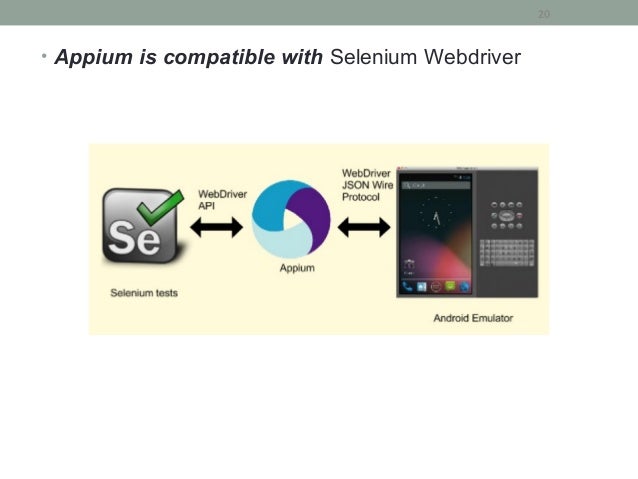

If the following dialog is shown, select Always Allow. Note: is the device UDID of your mobile device. Xcodebuild -project WebDriverAgent.xcodeproj -scheme WebDriverAgentRunner -destination 'id=' test Build WebDriverAgent to verify whether the steps above work.Repeat the last two steps for WebDriverAgentRunner.Then on Xcode’s menu bar, select Product > Build:.Select WebDriverAgentLib, and in the Signing section, check Automatically manage signing and select a team.Open the project WebDriverAgent.xcodeproj under WebDriverAgent in Xcode. Mkdir -p Resources/WebDriverAgent.bundle sh. Open the Terminal at WebDriverAgent in Appium directory folder: /appium/node_modules/appium-xcuitest-driver/WebDriverAgent and enter following command to initialize WebDriverAgent project:.Open Xcode > Preferences > Accounts: Add developer’s Apple ID.
APPIUM MAC TUTORIAL EMULATOR INSTALL
You will need to install and configure Xcode in case of testing on iOS devices. Set the Appium Directory to "/usr/local/lib/node_modules/appium" in Katalon Preferences (from the Katalon menu, go to Preferences > Katalon > Mobile). Note: To make sure Node.js is installed correctly, you run the command which node on Terminal. Katalon Studio requires the latest installation of Appium and Node.js. To set up a mobile automation project in Windows, see this article. It assumes that you are familiar with automated testing.
APPIUM MAC TUTORIAL EMULATOR HOW TO
This tutorial explains how to setup a mobile app testing project for Katalon Studio on macOS. Using Katalon Studio, a tester can design mobile app automation tests for both Android and iOS to run on physical devices, cloud services, or emulators.


 0 kommentar(er)
0 kommentar(er)
